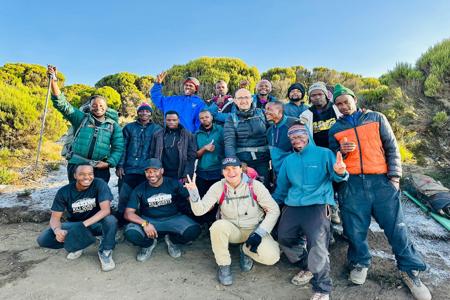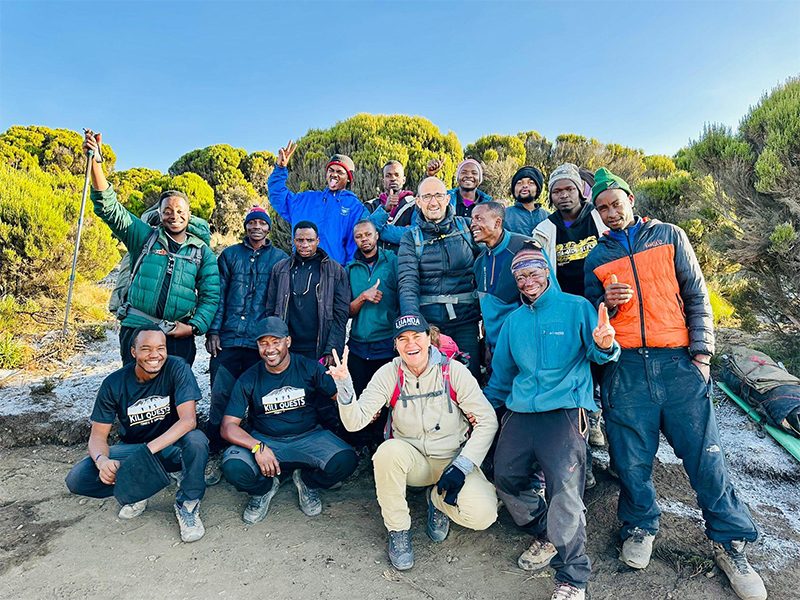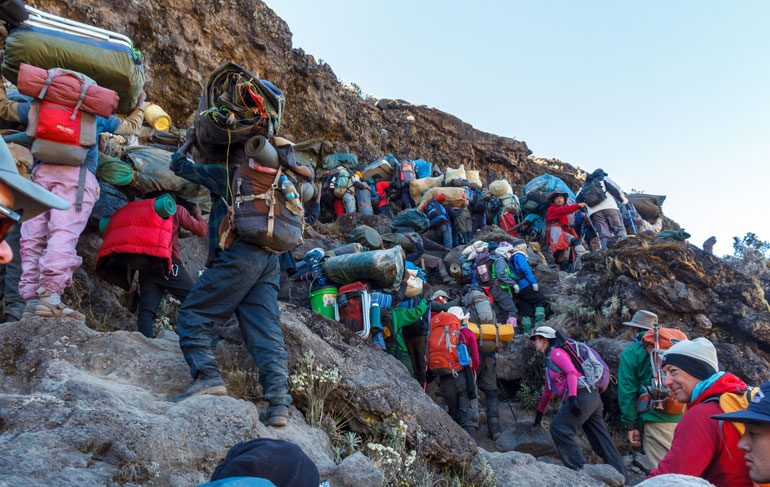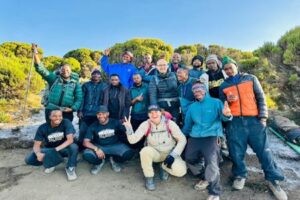Table of Contents
What Porters Do Behind the Scenes on Kilimanjaro | Kili Quests
The True Backbone of Every Climb
Every Kilimanjaro success story is written not just by those who reach the summit, but by the porters who make it possible. These men and women carry loads, prepare camps, deliver meals, and guide trekkers with strength, warmth, and deep knowledge of the mountain.
At Kili Quests, we know this because our story is rooted in theirs. Our founder’s father has worked as a mountain guide for over 35 years — and his firsthand experience with the struggles and dedication of porters has shaped the way we operate today.Understand how Chagga values influence porter culture, respect, and teamwork on the mountain
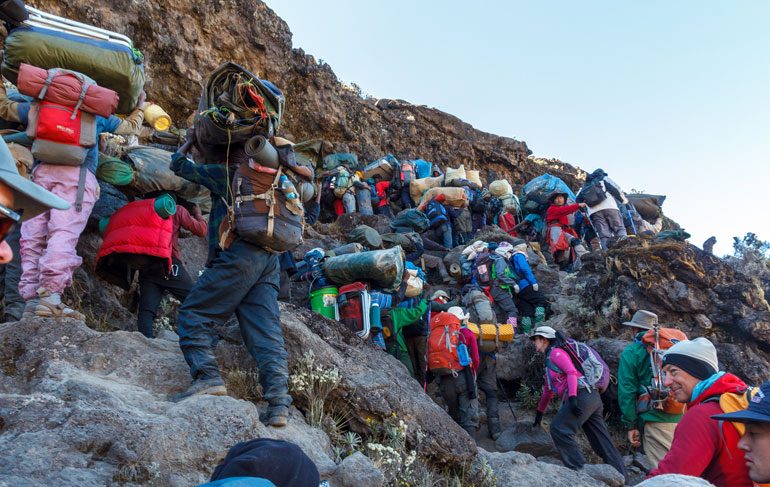
Who Are Kilimanjaro Porters?
Porters are local Tanzanians — often from nearby villages like Marangu, Moshi, and Arusha — who work as part of the mountain crew. Many are Chagga or Pare by heritage, with generations of experience on the slopes of Kilimanjaro.
They are trained to:
- Carry equipment, tents, and supplies
- Help set up and take down camp
- Assist guides with navigation and safety
- Support trekkers physically and emotionally
At Kili Quests, we proudly hire and train porters from our own local communities and ensure they are well paid, well fed, and fully respected.How Many Porters You Need – “Get a breakdown of how many porters are required per trekker — and why it matters.”
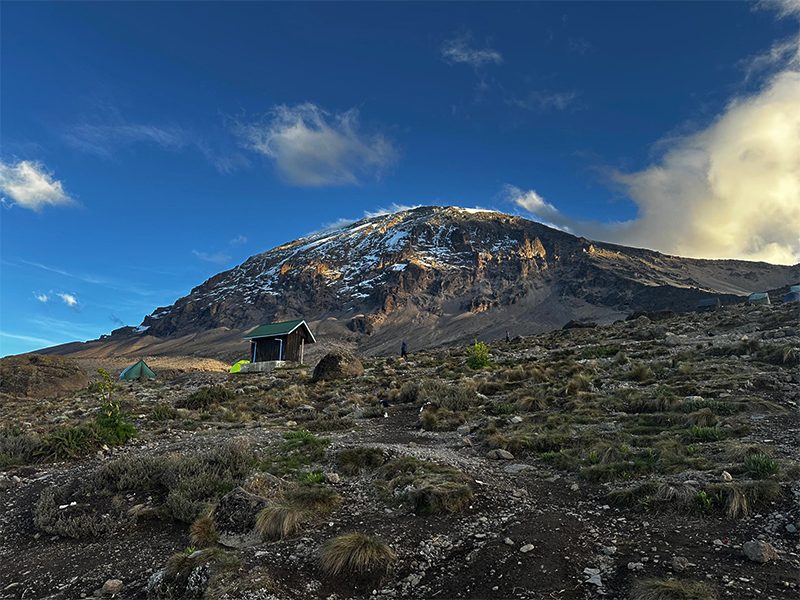
What Porters Do Each Day
Here’s a breakdown of a typical day in the life of a Kilimanjaro porter:
1.Carry Gear (20–25 kg per person)
Porters carry:
- Trekker duffel bags
- Tents, sleeping mats, and cooking equipment
- Food supplies, water, and gas tanks
- Sometimes even portable toilets or dining tents
While the legal weight limit is 20 kg, many porters still carry more. At Kili Quests, we strictly enforce the ethical limit and assign extra porters if needed.
2. Set Up and Break Down Camp
Before trekkers even arrive at the next campsite, porters:
- Pitch tents
- Arrange sleeping gear
- Prepare the dining area(Waiter)
- Help kitchen staff set up cooking gear(assistance shef)
In the morning, they wake early to pack up everything again and start ahead of the group.
3. Assist with Water Collection & Cooking
Many porters help collect water from nearby streams, purify it, and deliver it to the kitchen team or guides. Some porters also:
- Help the cook with prepping food(Assistance shef)
- Deliver tea or snacks to trekkers in tents(Waiter)
4. Support Safety and Motivation
Porters often check on trekkers, help those feeling weak or tired, and sometimes even carry a trekker’s daypack to help them reach camp. They share local knowledge, stories, and energy that can boost morale on tough days.
Did You Know?
- Some porters summit with the group(experience one), helping carry oxygen tanks or extra gear
- Porters are often first responders if someone is sick or needs evacuation
- Many of today’s top mountain guides started as porters
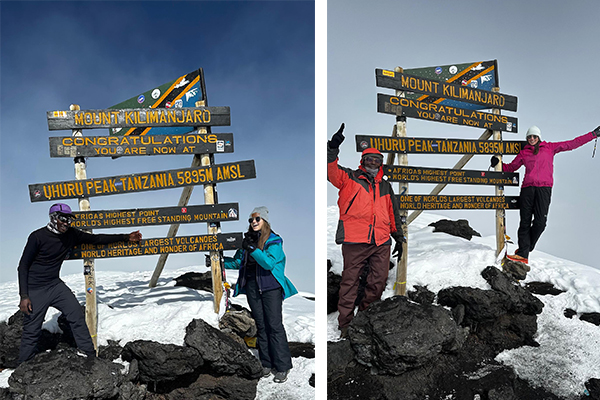
Our Promise to the Porters
We are a Chagga-owned and independently operated company, deeply rooted in this mountain’s community. Our porter welfare program is based on decades of personal experience and local leadership — grounded in respect, responsibility, and pride.
Here’s what we proudly offer:
- Fair wages paid directly to each porter
- Hot meals, warm tents, and proper rest at every camp
- No overloading or shortcuts — ever
- ❝ My father worked over three decades on this mountain with various companies and truly understood the struggles porters face. I know what it means to be treated right. That’s why we run Kili Quests the way we do — with honor, fairness, and pride. ❞
- — Allen Minja, Founder of Kili Quests
We also encourage generous tipping as part of appreciating your mountain team — and we’ve created a full guide to help you: Read our Kilimanjaro Tipping Guide here »
What You Can Do as a Trekker
When you climb with Kili Quests, you support a system that truly values its team. You can also:
- Greet porters by name
- Say “asante sana” (thank you) often
- Offer your appreciation directly — not just through tips
- Learn about their families, dreams, and stories
- Leave with more than memories — leave with connection
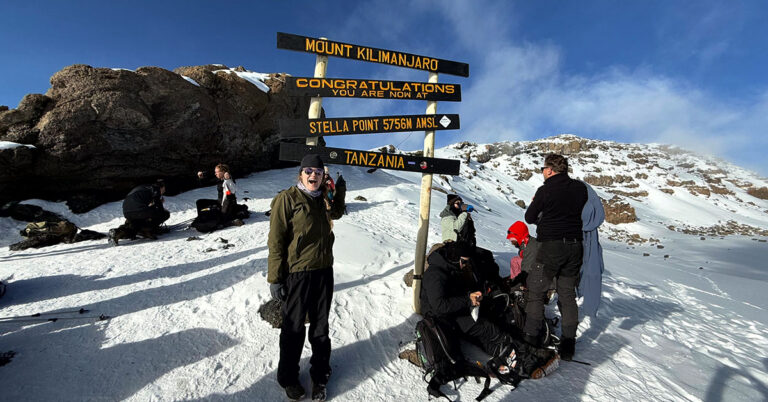
Respect the Team. Respect the Mountain.
Kilimanjaro isn’t just a climb — it’s a community. Every safe summit is thanks to hard-working, resilient, and proud porters who walk beside you, and often ahead of you.
At Kili Quests, we don’t just guide climbs — we build careers, protect dignity, and elevate lives.
Climb Responsibly. Climb with Kili Quests.
At Kili Quests, we’re proud to be a local, Chagga-owned company that puts our porters first. Our crews are family — and when you trek with us, they become part of your success story too.Join a trek that respects the mountain and its people.
Related Articles
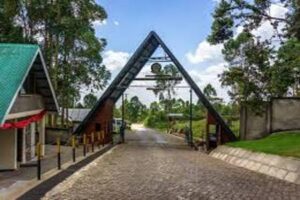
Kilimanjaro Porters: Unsung Heroes of the Summit
April 15, 2025
No Comments
Table of Contents What Porters Do Behind the Scenes on Kilimanjaro | Kili Quests The True Backbone of Every Climb Every Kilimanjaro success story

All-Inclusive Kilimanjaro Tour: Meals, Gear, Guides & More
April 9, 2025
No Comments
Table of Contents Kilimanjaro Climbing Package: What’s Included | Kili Quests Climbing Mount Kilimanjaro is one of the most rewarding adventures on earth —

Kilimanjaro Gear Rentals: What You Need & Where to Get It
April 10, 2025
No Comments
Table of Contents Don’t Have Hiking Gear? Here’s How to Rent Equipment for Your Kilimanjaro Trek | Kili Quests No gear? No problem. You don’t



